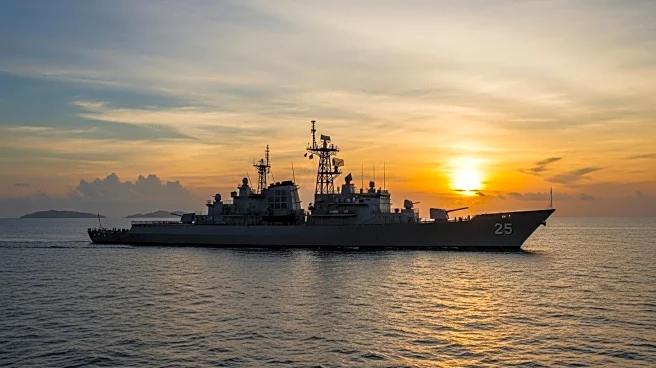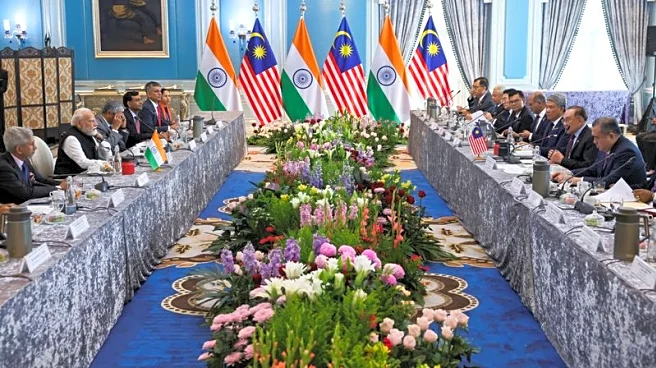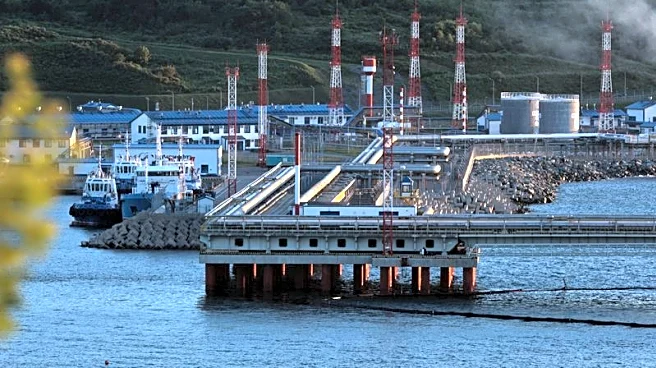What is the story about?
What's Happening?
The Australian government, led by Prime Minister Anthony Albanese, encountered a significant setback in its Pacific defense strategy during a visit to Papua New Guinea (PNG). Albanese had anticipated signing a landmark mutual defense agreement, known as the Pukpuk treaty, with PNG, which would have formalized the country as an ally of Australia. However, the agreement was not finalized, and instead, a 300-word joint communique was signed with PNG's Prime Minister James Marape. The delay is attributed to concerns within Marape's cabinet regarding PNG's sovereignty and the influence of external players, particularly China's expanding presence in the Pacific region. Despite the setback, both leaders are committed to salvaging the agreement, with Albanese emphasizing the importance of proper democratic processes.
Why It's Important?
The delay in finalizing the defense agreement between Australia and PNG highlights the complex geopolitical dynamics in the Pacific region. The agreement is crucial for Australia as it seeks to strengthen its influence and security partnerships in the Pacific, countering China's growing presence. The situation underscores the challenges faced by democracies in negotiating sensitive agreements that involve sovereignty and security. The outcome of this agreement could have significant implications for regional stability and the balance of power in the Pacific. It also reflects the broader strategic competition between major powers in the region, with Australia aiming to solidify its role as a key security partner for Pacific nations.
What's Next?
Both Australia and PNG are expected to continue negotiations to finalize the defense agreement. Prime Minister Albanese, along with Foreign Minister Penny Wong, will likely intensify diplomatic efforts to address the concerns raised by PNG's cabinet. The Australian government may also engage with other Pacific nations to reinforce its strategic partnerships. The delay in the agreement could prompt further discussions on regional security and infrastructure development, particularly in light of China's influence. Observers anticipate that the agreement may not be completed until the end of 2025, but ongoing dialogue is expected to eventually lead to a successful resolution.
Beyond the Headlines
The situation reveals deeper geopolitical tensions in the Pacific, where smaller nations like PNG navigate relationships with larger powers. The delay in the agreement highlights the sensitivity of sovereignty issues and the influence of external actors like China. It also raises questions about the effectiveness of Australia's Pacific strategy and its ability to adapt to the evolving political landscape. The outcome of these negotiations could set a precedent for future agreements in the region, influencing how Pacific nations balance their relationships with major powers.
















